A TV special fails to unearth convincing tale of Jesus' tomb
Monday, March 05, 2007
By LESLIE PALMA-SIMONCEK
ADVANCE RELIGION EDITOR
http://www.silive.com/living/advance/index.ssf?/base/living/1173100534219690.xml&coll=1
STATEN ISLAND, N.Y. -- Anyone thinking that a two-hour TV special was going to shake the very foundations of Christianity went to bed disappointed last night.
The Discovery Channel documentary "The Lost Tomb of Jesus" made extraordinary claims -- suggesting that Jesus did not experience a bodily resurrection, as a majority of Christians believe.
The documentary, while plodding and liberally sprinkled with commercials, did provide an interesting look at burial customs of first century Israel and it presented a whole cadre of experts in a variety of fields speculating on the possibilities, many of them tantalizing. But none of the evidence was overwhelmingly convincing.
It's rare to find an issue that unifies Christians across their denominational divides, but the so-called Jesus tomb seems to have accomplished just that.
The most liberal Mainline Protestants to the most passionate evangelical Christians all greeted with deep skepticism the news that a 1980 archaeological dig in Jerusalem unearthed 10 burial boxes, or ossuaries, that contain not only the bones of Jesus, but also those of his presumed wife, Mary Magdalene, and their son, Judah.
DNA tests performed on remains of the box with the inscription "Yeshua, son of Yosef," -- or Jesus, son of Joseph -- and the one marked "Mariamne," a woman believed to be Mary Magdalene, concluded that the two did not share the same mother and thus must have been husband and wife. It was too much of a leap, and a panel discussion after the show, moderated by Ted Koppel, took Israeli-born filmmaker Simcha Jacobovici to task on the point.
The show, produced by James Cameron of "Titanic" fame, built in its own critics, whose certainty that the bones are not that of Jesus seemed more credible than the arguments of those claiming they are. "The Lost Tomb of Jesus" provided some tricky moments for Catholic parents watching with their children.
The filmmakers presented as established fact that Jesus had two sisters and four brothers, and while these siblings are mentioned in the Gospels, Catholic teaching has always held that Jesus' mother Mary remained a virgin throughout her life, and that these siblings were actually cousins.
The very mention of the possibility that Jesus himself could have been married and fathered a child borders on blasphemous for many Christians, although the most liberal denominations have no trouble accepting such a concept.
The documentary tossed a bone or two, if you will, to those who believe that women played a much more prominent role in the early church. In its sometimes hokey dramatizations, Mary Magdalene was shown preaching and teaching, and Jesus' mother Mary also was shown as a powerful leader after Jesus' crucifixion.
But these are not new theories and don't require the bones of Jesus to back them up.
The documentary opened and closed with an invitation for viewers to use their own judgment in deciding whether or not to believe its radical claims, and at a gathering earlier in the day yesterday, 60 people, most of them Episcopalians, already had made up their minds.
"It seems to me people are looking for a secular Jesus," Rosemary Loffredo of Grymes Hill said. "This is all a little annoying."
Ms. Loffredo had come to Canterbury House in Rosebank to hear New Testament scholar Dr. Deirdre Good discuss the non-canonical gospels, accounts of Jesus' life, ministry and teachings that were not included in the Bible.
Dr. Good, whose books include one on Mary Magdalene and a new one called "Jesus' Family Values," sided with the skeptics.
"There are so many problems with the evidence of the tombs," said Dr. Good, citing the inconclusive DNA results and a simplistic statistical analysis of the likelihood of the names of Jesus' family members -- including his parents, Joseph and Mary -- appearing together.
Buy beyond questioning what modern science can discover about a 2,000-year-old family, she said it was unlikely Jesus would have been buried in Jerusalem.
"I don't think this is Jesus' family," Dr. Good said. "Jesus family is in Galilee. If the inscription said Jesus of Nazareth, I would be much more persuaded."
Her audience agreed.
"Ridiculous," said Great Kills resident William MacDonald, a Catholic who holds a divinity degree.
"If you look at the history and the scientific research, it really causes me to doubt the authenticity," said Deacon Geraldine Swanson of the Church of the Ascension in West Brighton.
Dr. Good noted that the season of Lent, when even the most lapsed Christians draw closer, if fleetingly, to their faith, is often when the most radical theories are proposed. Last year's explosive Lenten discovery was the Gospel of Judas, which initially seemed to suggest that the disciple who sold Jesus out to the authorities was not the villain of the Easter story.
The year before that, it was the novel "The Da Vinci Code," which also theorized that Jesus married Mary Magdalene.
"It's all hype," said Ms. Loffredo. "It's all publicity."

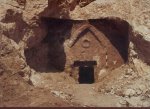
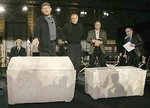






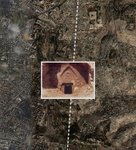


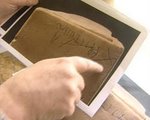






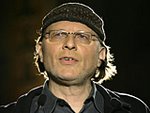

















No comments:
Post a Comment